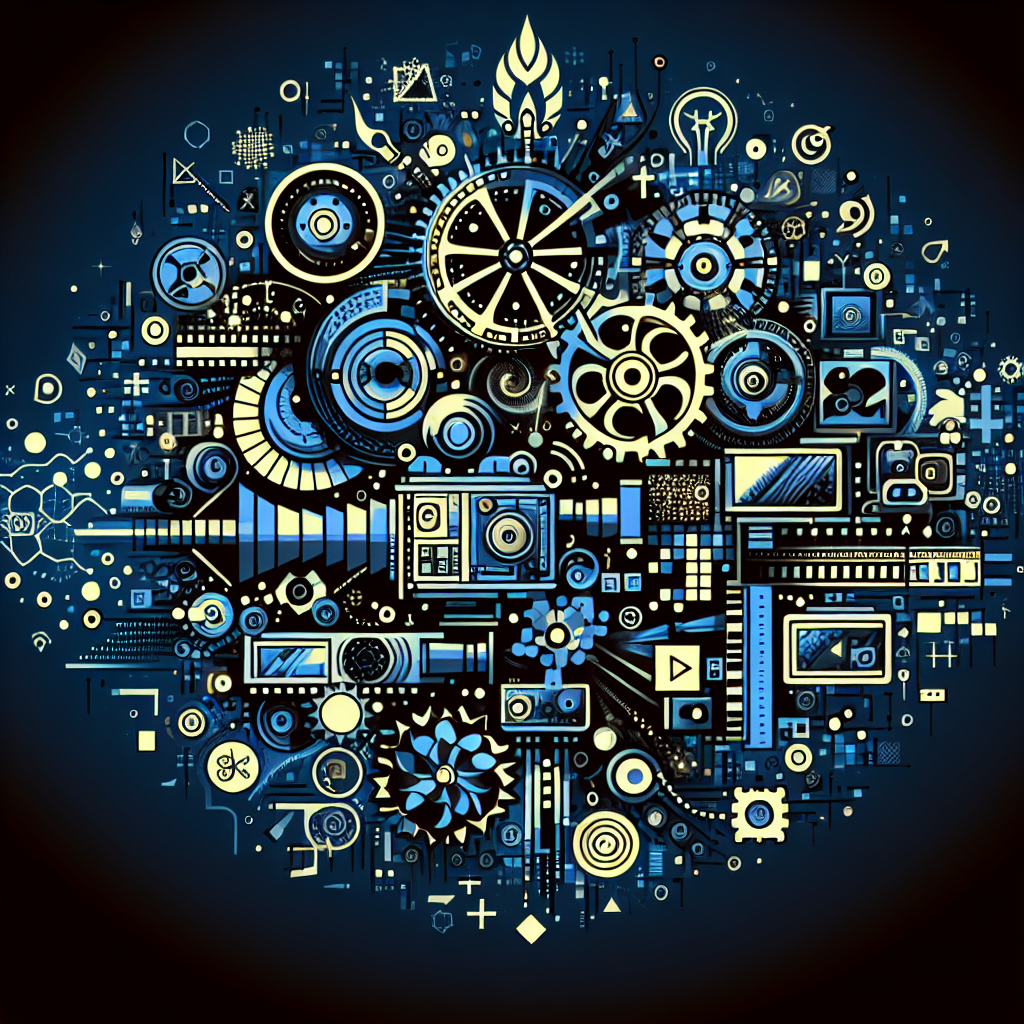Artificial Intelligence (AI) has been making significant advancements in various industries, and the film and television industry is no exception. AI is revolutionizing the way content is created, produced, and consumed, making it a game-changer for creativity in the entertainment industry.
AI in Film and Television Production
AI is being used in various aspects of film and television production, from scriptwriting to editing to visual effects. One of the key areas where AI is making a big impact is in the pre-production stage, where it can help generate ideas for scripts, analyze data to predict audience preferences, and even help with casting decisions.
For example, ScriptBook is an AI-powered tool that can analyze scripts and predict their success at the box office. It can analyze elements like genre, plot structure, and character development to provide insights on how well a script will perform with audiences. This can help filmmakers make more informed decisions about which projects to greenlight.
AI is also being used in post-production to streamline the editing process. Tools like IBM’s Watson can analyze hours of raw footage and help editors identify the best takes, saving time and making the editing process more efficient. AI can also be used to create visual effects, like deepfake technology that can seamlessly insert actors into scenes they weren’t actually present for.
AI in Content Recommendation
AI is also playing a big role in content recommendation, helping viewers discover new films and TV shows that they may enjoy. Platforms like Netflix and Amazon Prime use AI algorithms to analyze user data and preferences to recommend content that is tailored to each individual viewer. This not only helps viewers discover new content but also helps content creators reach a wider audience.
AI in Audience Engagement
AI is also being used to enhance audience engagement with films and television shows. Chatbots powered by AI can interact with viewers in real-time, providing additional information about the content or even creating personalized experiences. For example, during live events like award shows or premieres, chatbots can answer questions, provide behind-the-scenes insights, and engage with viewers in a more interactive way.
AI in Storytelling
One of the most exciting applications of AI in the film and television industry is in storytelling. AI algorithms can analyze vast amounts of data to identify patterns and trends in storytelling, helping filmmakers create more engaging and compelling narratives. For example, AI can analyze successful films and TV shows to identify common elements that resonate with audiences, helping filmmakers create content that is more likely to be successful.
FAQs:
1. How is AI changing the film and television industry?
AI is changing the film and television industry by streamlining production processes, enhancing audience engagement, improving content recommendation, and helping with storytelling. AI is revolutionizing the way content is created, produced, and consumed, making it a game-changer for creativity in the entertainment industry.
2. What are some examples of AI tools used in film and television production?
Some examples of AI tools used in film and television production include ScriptBook, IBM’s Watson, and deepfake technology. These tools help filmmakers with script analysis, editing, and visual effects, making the production process more efficient and effective.
3. How does AI enhance audience engagement with films and television shows?
AI enhances audience engagement with films and television shows by providing personalized recommendations, creating interactive experiences through chatbots, and engaging with viewers in real-time during live events. This helps content creators reach a wider audience and create more engaging content.
4. How can AI help with storytelling in the film and television industry?
AI can help with storytelling in the film and television industry by analyzing data to identify storytelling patterns and trends, helping filmmakers create more engaging and compelling narratives. By analyzing successful films and TV shows, AI can help filmmakers create content that is more likely to resonate with audiences.
5. What are the potential drawbacks of using AI in the film and television industry?
Some potential drawbacks of using AI in the film and television industry include concerns about job displacement, ethical implications of deepfake technology, and the risk of AI algorithms perpetuating biases in content recommendation. It is important for filmmakers and industry professionals to be aware of these potential drawbacks and address them proactively.
In conclusion, AI is transforming the film and television industry in exciting ways, from streamlining production processes to enhancing audience engagement to improving storytelling. As AI continues to evolve and advance, it will undoubtedly play an even bigger role in shaping the future of entertainment. By embracing AI technology and harnessing its creative potential, filmmakers and content creators can unlock new possibilities and push the boundaries of storytelling in the digital age.

